- Category
- Perspectives
What Syrians Think About Ukraine’s Fight Against the Same Aggressor, Russia
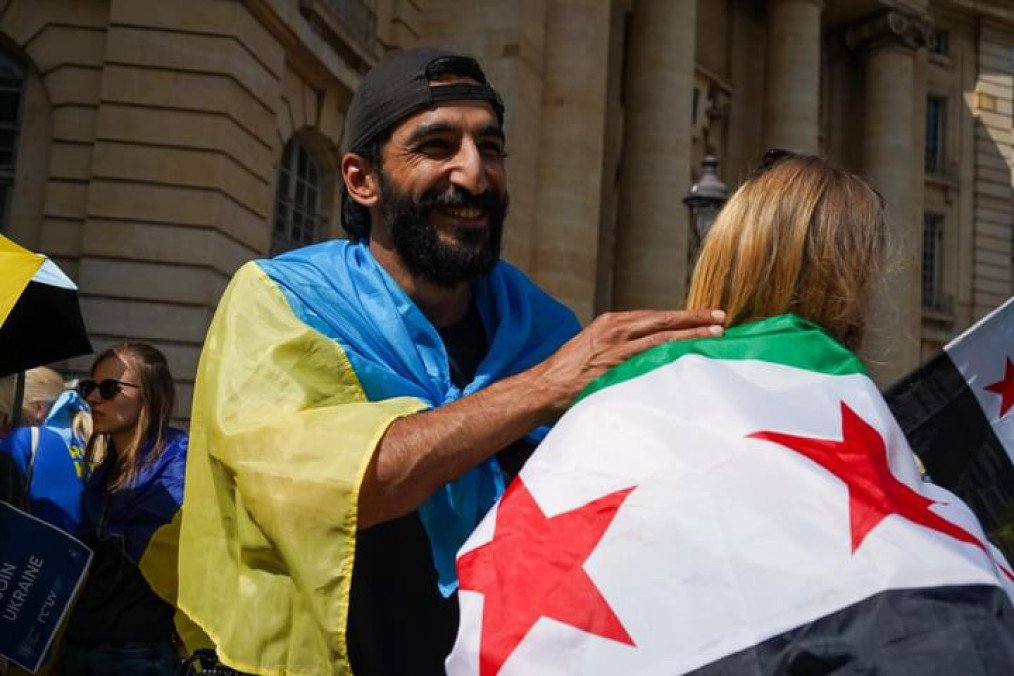
“Never lose hope,” says Sara, a 28-year-old pharmacist from Hama, Syria. Years of war under Russian bombs, Syrians now watch with a unique perspective, as Ukraine battles its own existential fight.
For over five decades, Syrians endured the brutal regimes of Hafez al-Assad and his son, Bashar. In 2011, a war began that reshaped lives, cities, and the globe. Finally, on December 8, Syrian opposition forces announced the overthrow of Bashar al-Assad following their capture of Damascus, ending 54 years of authoritarian rule.
UNITED24 Media spoke with four Syrians who have lived through war to hear their thoughts on Ukraine’s fight. They speak about life under siege, the scars of Russian attacks, and what it means to resist against overwhelming odds. More importantly, they offer heartfelt advice to Ukrainians—lessons drawn from their own experiences of survival, loss, and hope.
Hussam, 32, journalist, Raqqah:
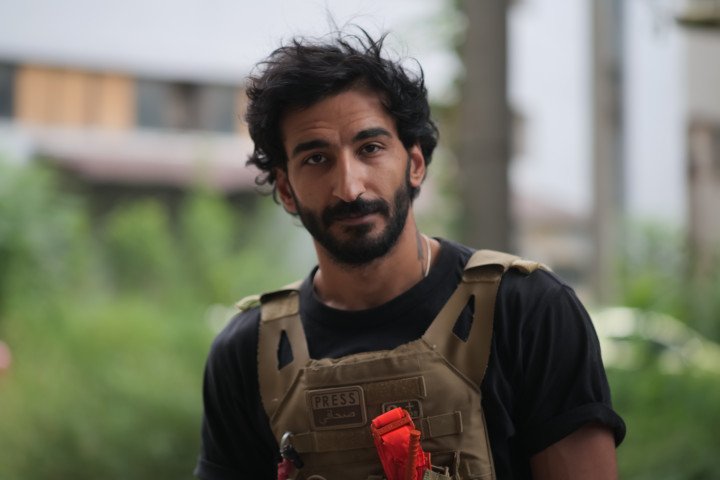
We are talking about the same aggressor in both countries.
Hussam
When the Assad regime fell, Hussam posted a photograph on X, visible tears streaming down his face. The post subsequently went viral, amassing 1.2 million views. “No killing, no airstrikes, no starvation,” the caption read, “no injuries, no sieges, no loss of our loved ones or ourselves. The killer is gone.”
No killing, no airstrikes, no starvation, no injuries, no sieges, no loss of our loved ones or ourselves. The killer is gone.
— Hussam Hammoud | حسام (@HussamHamoud) December 8, 2024
It’s hysterical. For hours with no sleep, I am still unable to process this, unable to grasp that Syria is free. Our country is ours again.#FreeSyria pic.twitter.com/mP2NBZ4lE1
Hussam, who is originally from Raqqah, Syria, came to Ukraine as a journalist with ARTE TV following Russia’s full-scale invasion. His reporting brought him up and down the frontline, from Kharkiv to Dnipro and Odesa. It was on his travels that he first began to notice the distinct connection between Syria and Ukraine, more than just their size—both countries are relatively large—they share a common enemy: Russia.
“I think especially for the Ukrainian people, they were quite aware about what’s going on in Syria,” says Hussam. “I remember in Odesa, I met some friends, and they were introducing me as a Syrian journalist, and the first question that the Ukrainian girl asked: from which Syria?” Hussam highlights the fact that for a very long time the media in Syria, under the Assad regime, was pushing support for Russian leader Vladimir Putin and Russia’s war. It was then that Hussam realized it was not enough to introduce himself merely as a Syrian, “You need to introduce your political position also.” He explains that this is especially important in Ukraine because the wars are closely connected, “We are talking about the same aggressor in both countries”.
While Assad and his followers supported Russia, Hussam explains that the “rebels” fully support Ukraine. At the onset of the full-scale invasion, he says rebels asked Turkey to open the borders so that they could go to fight in Ukraine. “Open the way for us [they would say]”, Hussam explains. “[They would say] ‘We want to go fight,’ and I’m not talking about regular fighters—we are talking about 11 years of experience fighters.”
Hussam offers another interesting perspective: war experience. When the war in Ukraine began, NGO’s recruited staff from Syria due to their prior experience in conflict zones. “It was quite weird to meet [former colleagues and friends] against the same aggressor, against Russia,” he says. Having worked as a humanitarian in Syria, Hussam adds, “They are doing the same thing now: trying to fix what Russia is destroying.” He believes the world is far more interconnected than it once was, which makes people feel and understand wars differently. While in Ukraine, for instance, he recalls meeting a volunteer draped in the free-Syrian flag
Overall, he is optimistic about Ukraine’s victory, “It will come soon,” he says, “You have a big ally and big fans [with Syria].”
Sara, 28, pharmacist, Hama:
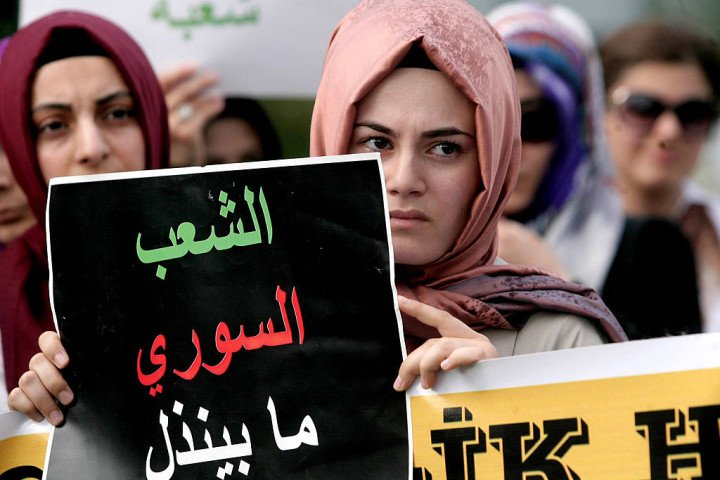
Keep fighting for what you believe is just and right.
Sara
Sara is from Hama, the birthplace of the revolution. Her aunt and cousin are Ukrainian and live in the capital, Kyiv. She believes the biggest connection the two countries share is Russia. “I think it was the only block stopping us from dethroning him.”
Sara believes Syria and Ukraine share a lot, “Syrians and Ukrainians share a deeper connection, in my opinion. Both nations have faced misrepresentation in the media and have had to fight tirelessly for freedom and justice against oppressive forces.”
In general, she feels that the international community did not do enough for Syria, and are not doing enough for Ukraine either. “It’s really surprising because I’ve always thought that maybe they don’t listen to us because people don’t care about the Middle East or what’s happening to Arabs or Muslims,” says Sara. She feels like Ukraine’s European neighbors should do more to help.
While she’s not sure if diplomatic ties between the two nations are ready just yet, she does feel that there is a possibility in the future. “There were a lot of scholarships given by the government for Syrian students,” she says, citing the past.
Unlike in Ukraine, it’s very rare for buildings in Syria to have basements. This means when the bombings started—there was nowhere to seek shelter. “Bombing, shooting, voices all the time,” she says, describing life under siege. Even now she is still startled by loud noises or fireworks, which many Ukrainians report feeling as well.
The ability to plan for the future is something that was robbed from Syrians and now Ukrainians. Even the economy under Assad was extremely unstable, access to utilities like water and electricity became intermittent and everything became very expensive. “To keep us warm, we use something called Mazut , I think you have it in Ukraine as well.”
Sara’s advice to Ukraine is heartfelt, “Never lose hope. Keep fighting for what you believe is just and right. In Syria, the struggle took many years and felt insurmountable at times, but eventually, the truth prevailed, and the world recognized the legitimacy of our cause.”
Waleed, 32, engineering student, Hama:
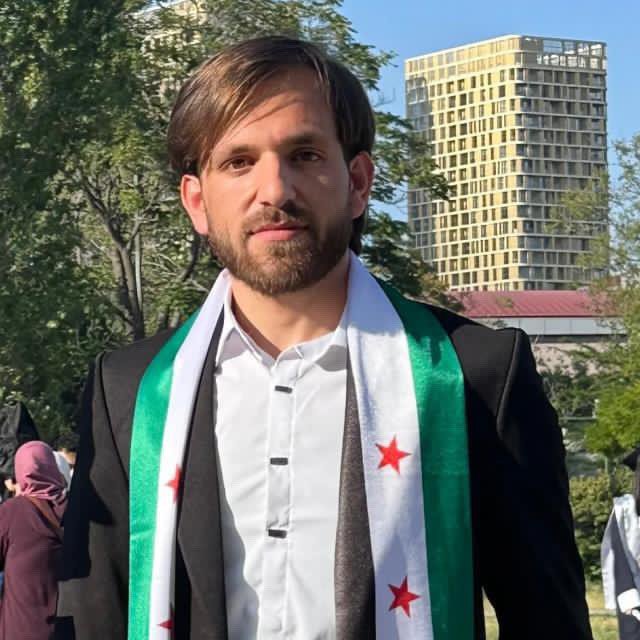
We don’t stand with Ukraine just because it is Ukraine… We stand with rights.
Waleed
Waleed hopes for peace for Ukraine, just like there is now for Syria. In order to have peace, the first thing that needs to happen, he says, is to remove Putin. “He killed a lot of people in Syria by airplane. There was no difference between children and elderly people and young people,” he tells UNITED24 Media. “So how can we like Putin?” Similar atrocities have occurred in Ukraine, with Russia’s indiscriminate bombing of hospitals and schools.
Words like “Homs” illicit painful memories for Waleed, not unlike “Mariupol” or “Bucha” in the minds of Ukrainians. Though Waleed and his family left Syria for Turkey when the war broke out, he hopes to take his engineering degree back to his country. “We can’t rebuild Syria, without the Syrian people,” he says.
After 14 years of war Waleed does not feel that any foreign government has truly helped in the way it needed, “We learned there are no friends for the Syrian people.” Likewise, while Ukraine has received overwhelming support from its European allies, this has not always translated into military aid from the West—which Ukraine has said it needs most to ensure a swift and decisive victory.
Waleed’s support for Ukraine comes from a desire for world peace. “We don’t stand with Ukraine just because it is Ukraine, just like we don’t stand with Russia because it is Russia. We stand with rights.”
Yahya, 23, medical student, Homs:
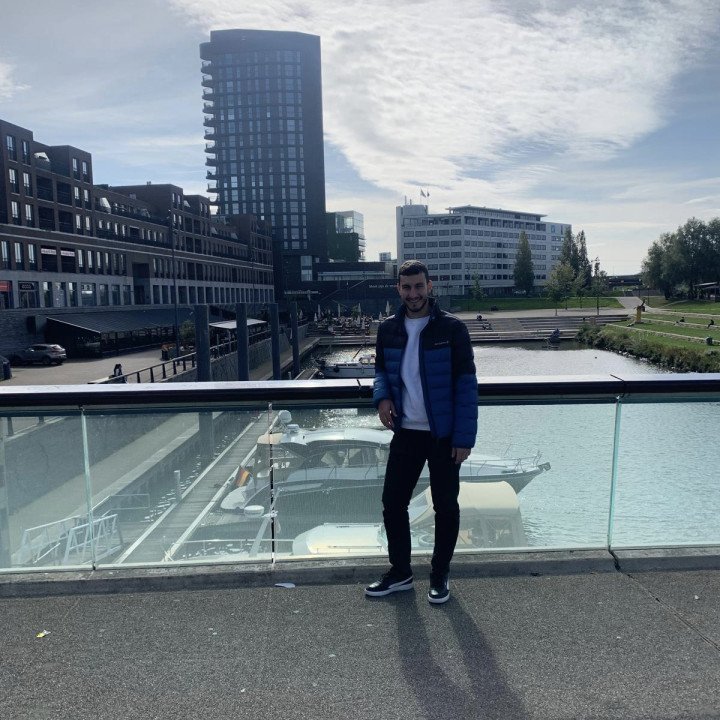
“[In Ukraine] the air alerts are coming from the government. [In Syria] our government was bombing us.”
Yahya
“Seeing every kind of bombing, killing… I remember that day sitting with my family, suddenly we heard the voice of the jet – I couldn’t move after that.” Yahya, who is now 23 and a medical student studying in Serbia, recalls Russian air assaults on his hometown in Homs, Syria. Eventually, his family left Homs and moved to Raqqa for safety, only to find out that nowhere was safe from Russian bombs. “Everywhere we went [there was] bombing.”
He believes there was a pivotal moment at the end of World War II when Syria came under the influence of the Soviet Union, which supplied the country with weapons. “Now,” he says, “‘all the weapons, that we bought were used against us.’ The weapons of Assad and Russia have become so intertwined, that there was no way to tell the difference. ‘I [couldn’t decipher] which jet is related to Russia and which jet is related to the President [Assad].’
While citizens in both Ukraine and Syria fall victim to Russian aerial attacks, Yahya doesn’t think it’s possible to compare the two wars. “The war in Ukraine is between two countries,” he says, “but the war in Syria is between the government and the militias.” He points to another stark contrast: air alerts. “Right now [in Ukraine the] alerts [are] coming from the government. Okay? [In Syria] our government was bombing us”
Both countries however have taken a huge toll on civilian infrastructure. In Ukraine, Russia regularly targets power plants and dams. In Syria, it does the same. Yahya remembers how basic needs like water and electricity became a luxury under the late Assad regime.
One thing he thinks both countries can certainly agree on is that they want to see the downfall of Putin. “Russia is not like Russia before,” he says, advising Ukrainians to “be patient and defend and I’m pretty sure you will win.”
-fca37bf6b0e73483220d55f0816978cf.jpeg)
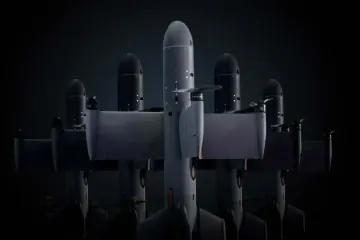
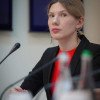
-588ae190d45987800620301cc34e2cf8.png)

-886b3bf9b784dd9e80ce2881d3289ad8.png)

-c42261175cd1ec4a358bec039722d44f.jpg)
-46f6afa2f66d31ff3df8ea1a8f5524ec.jpg)